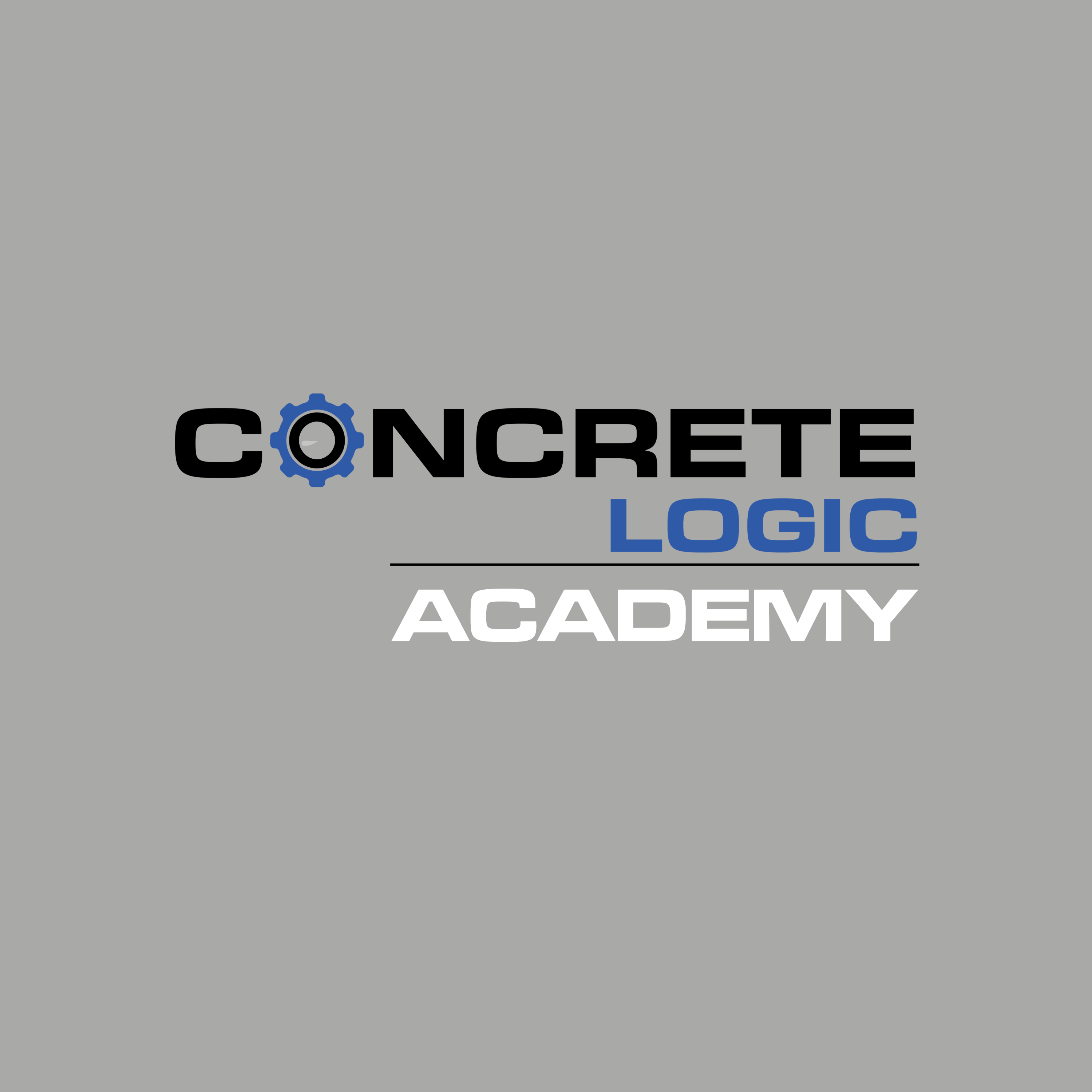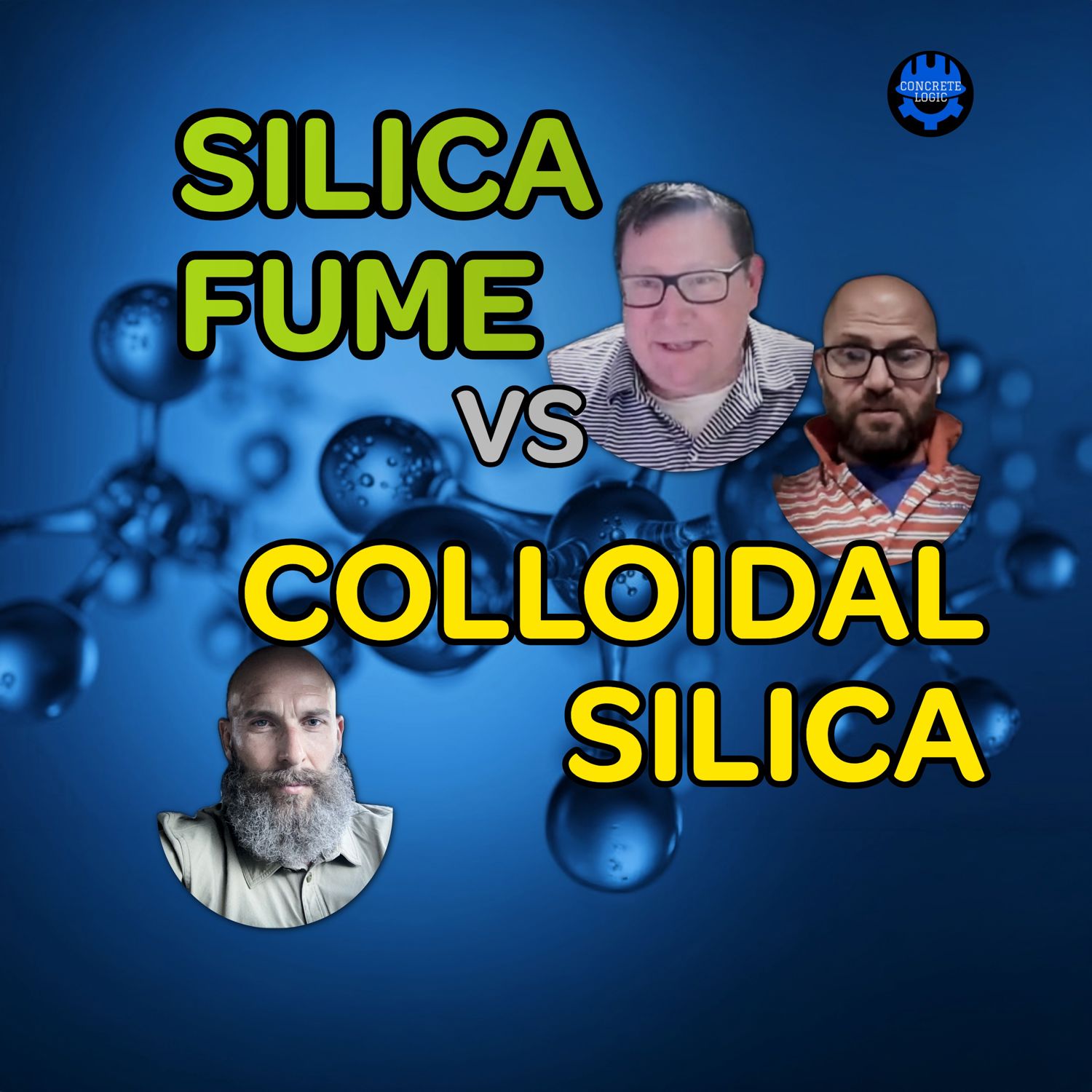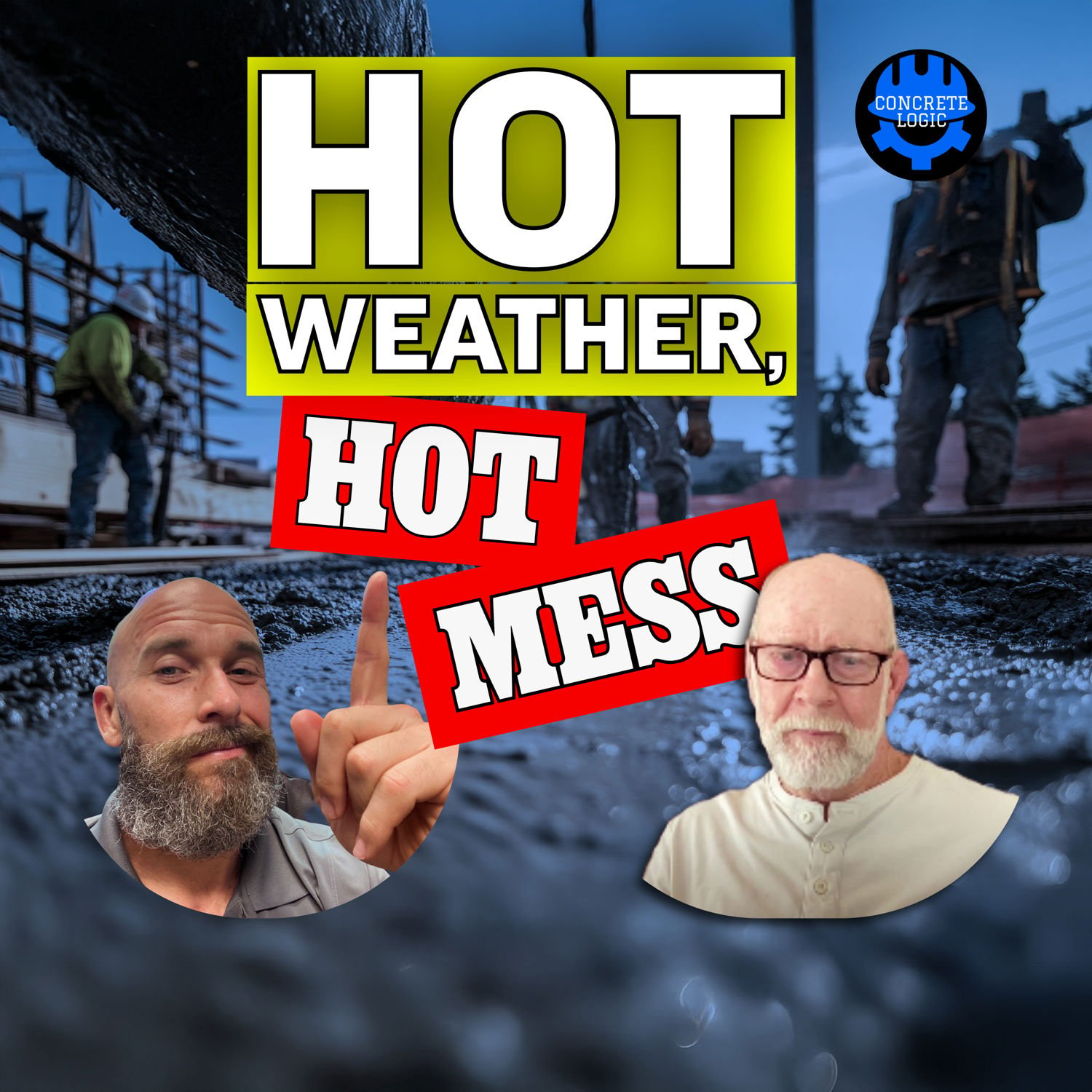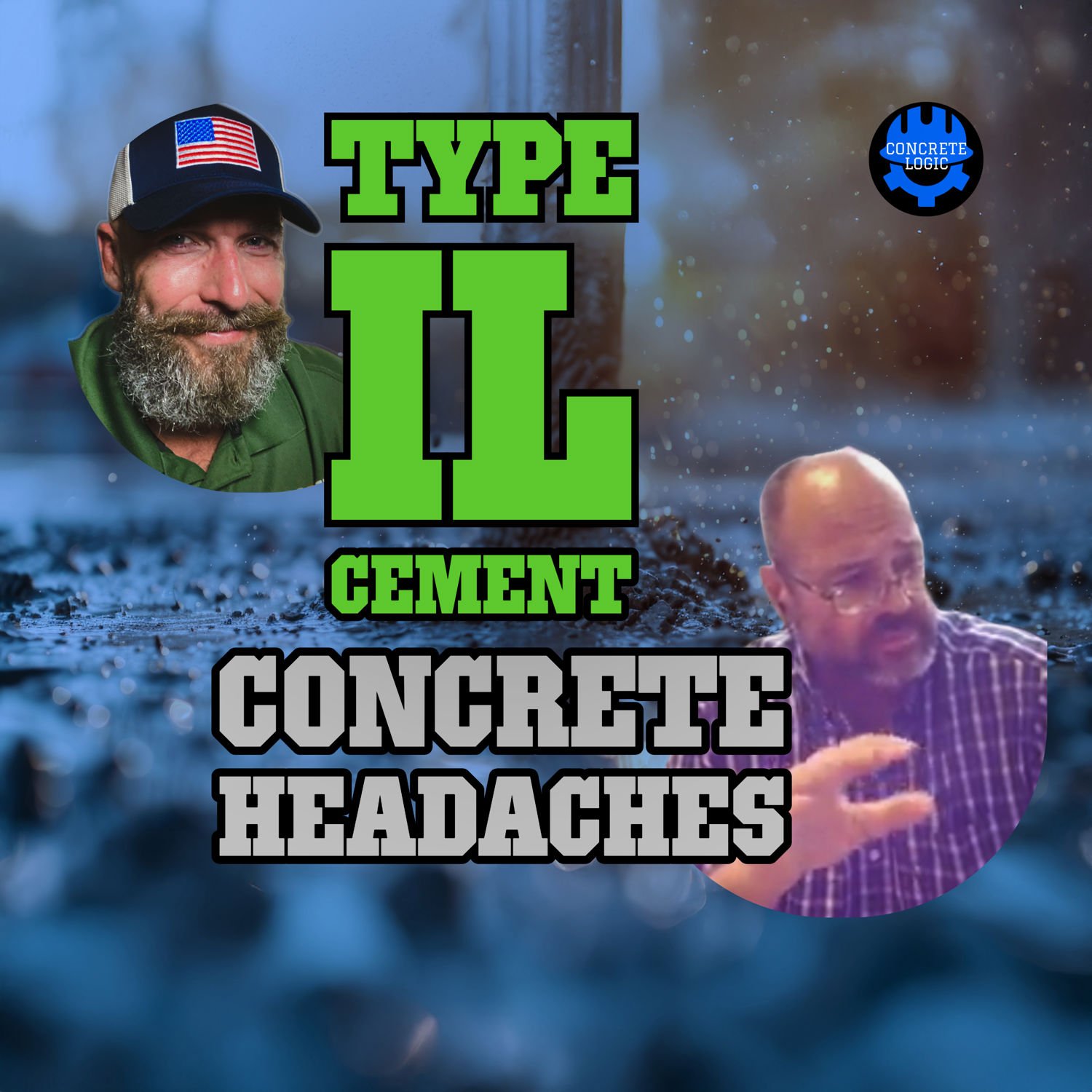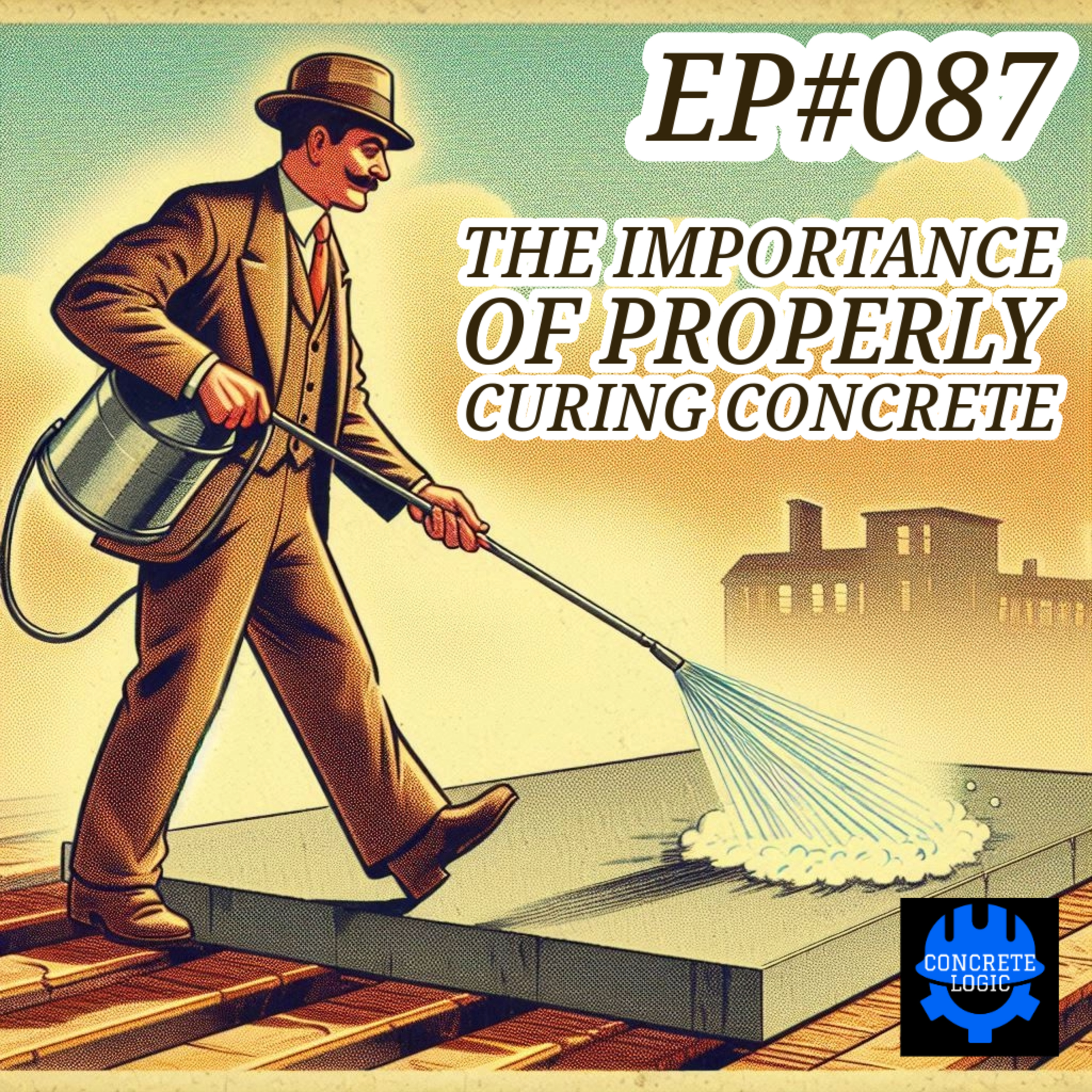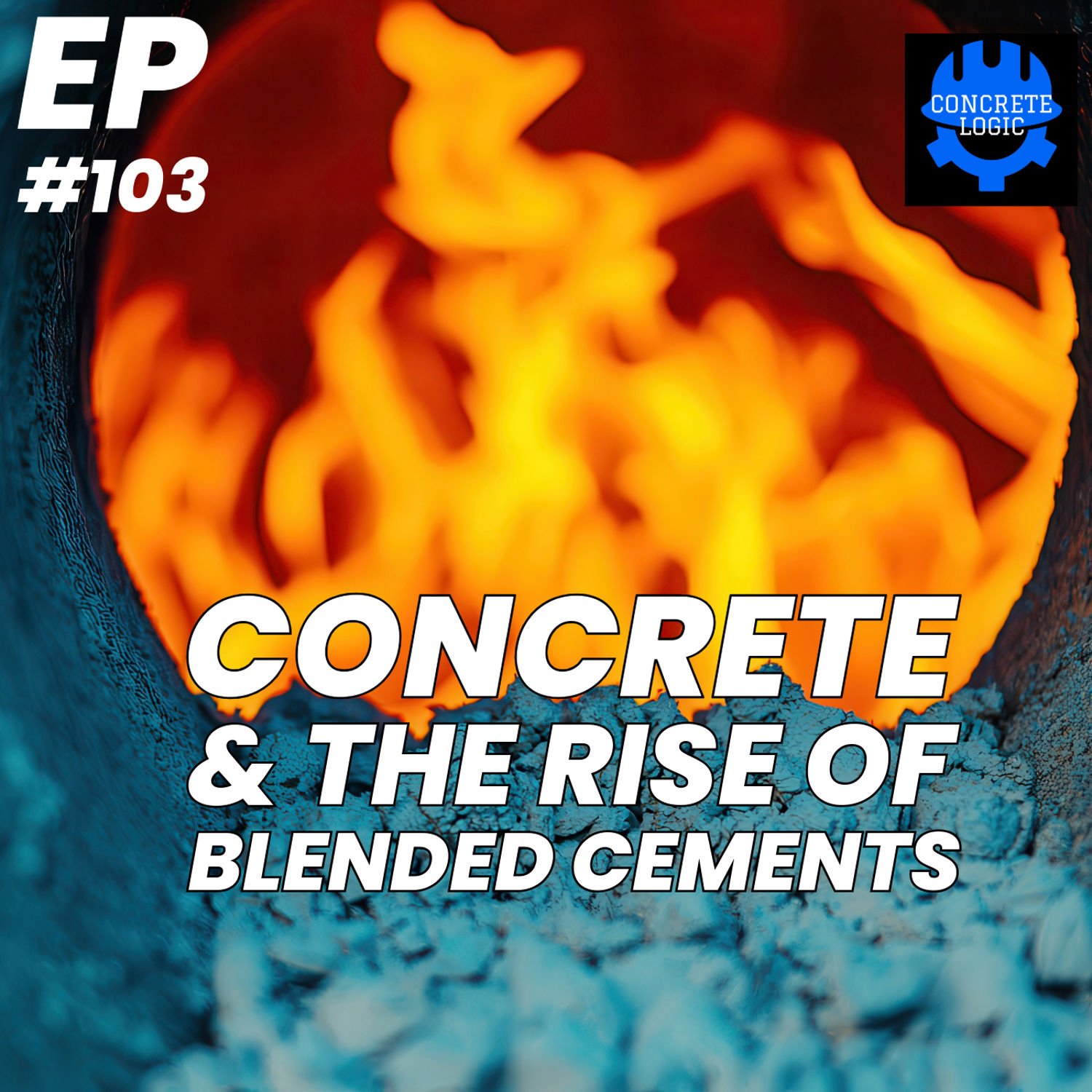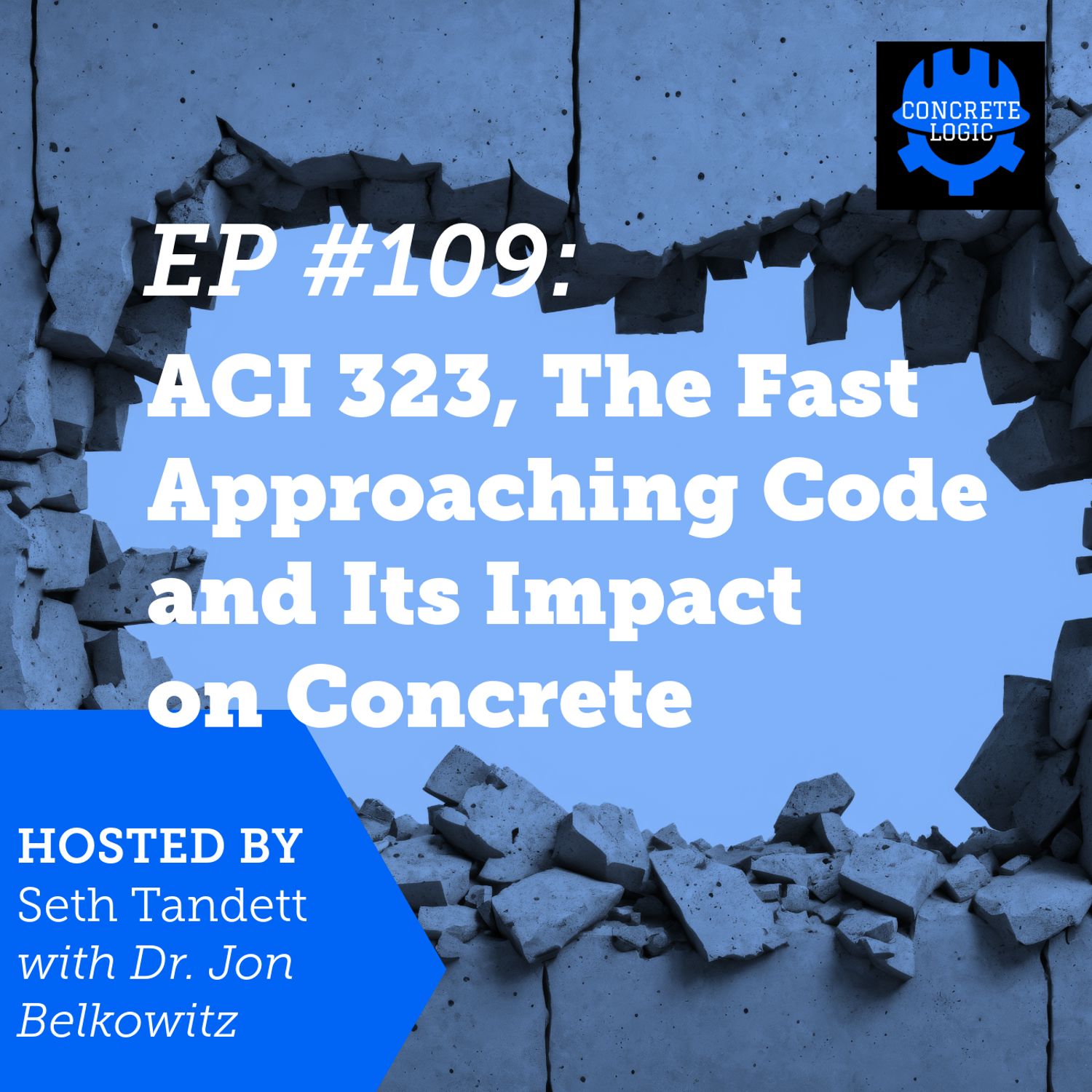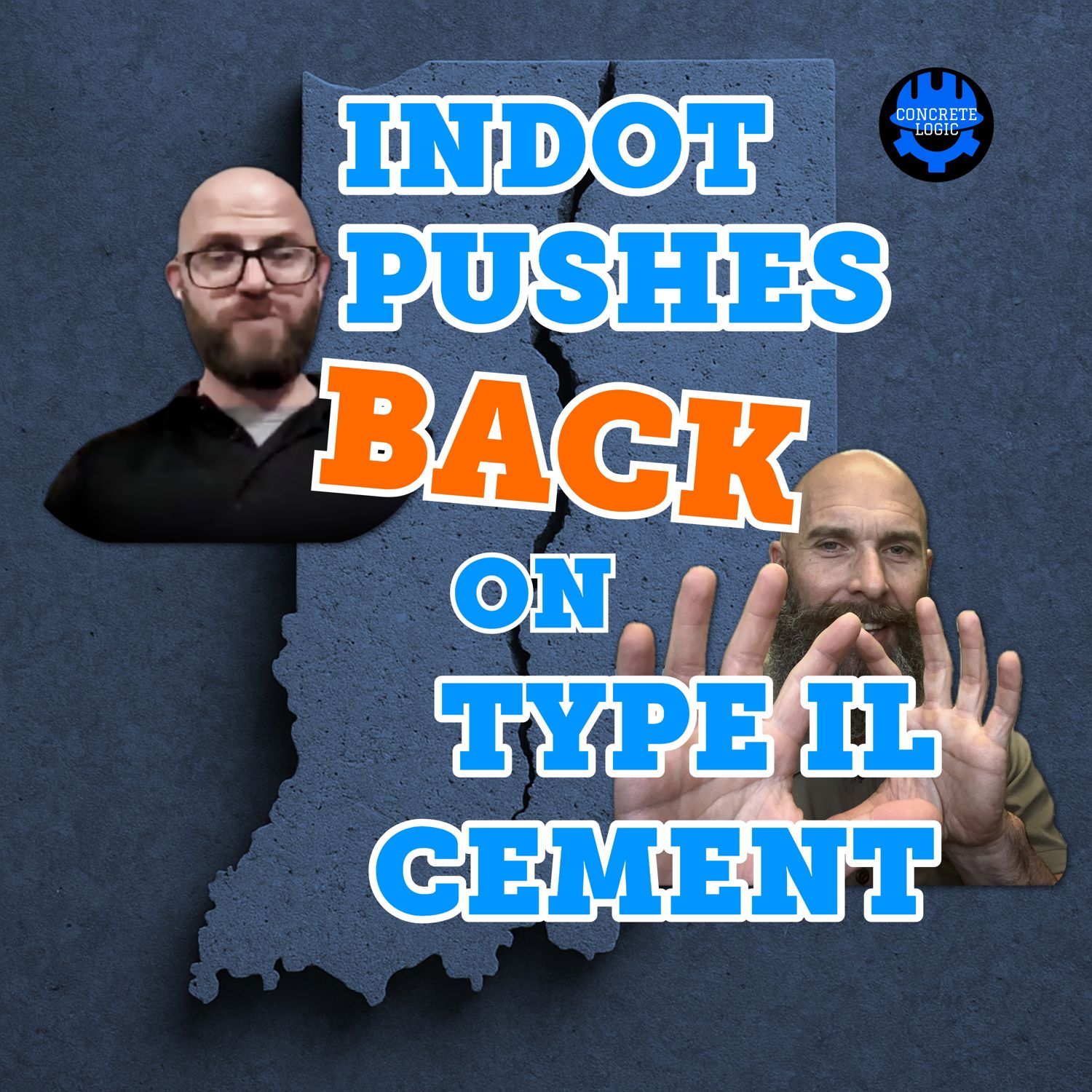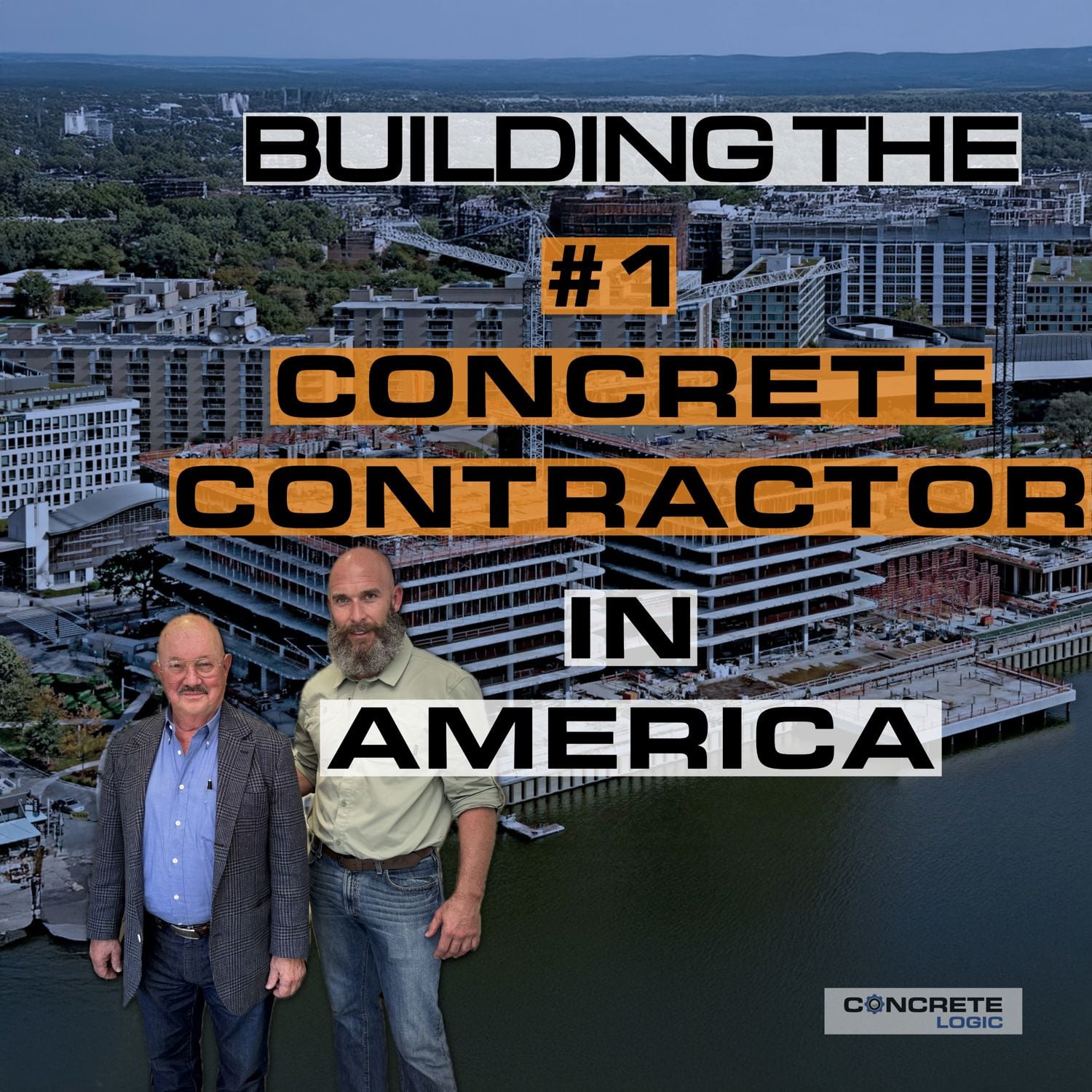EP #128: Why Soft Skills Still Matter in Concrete
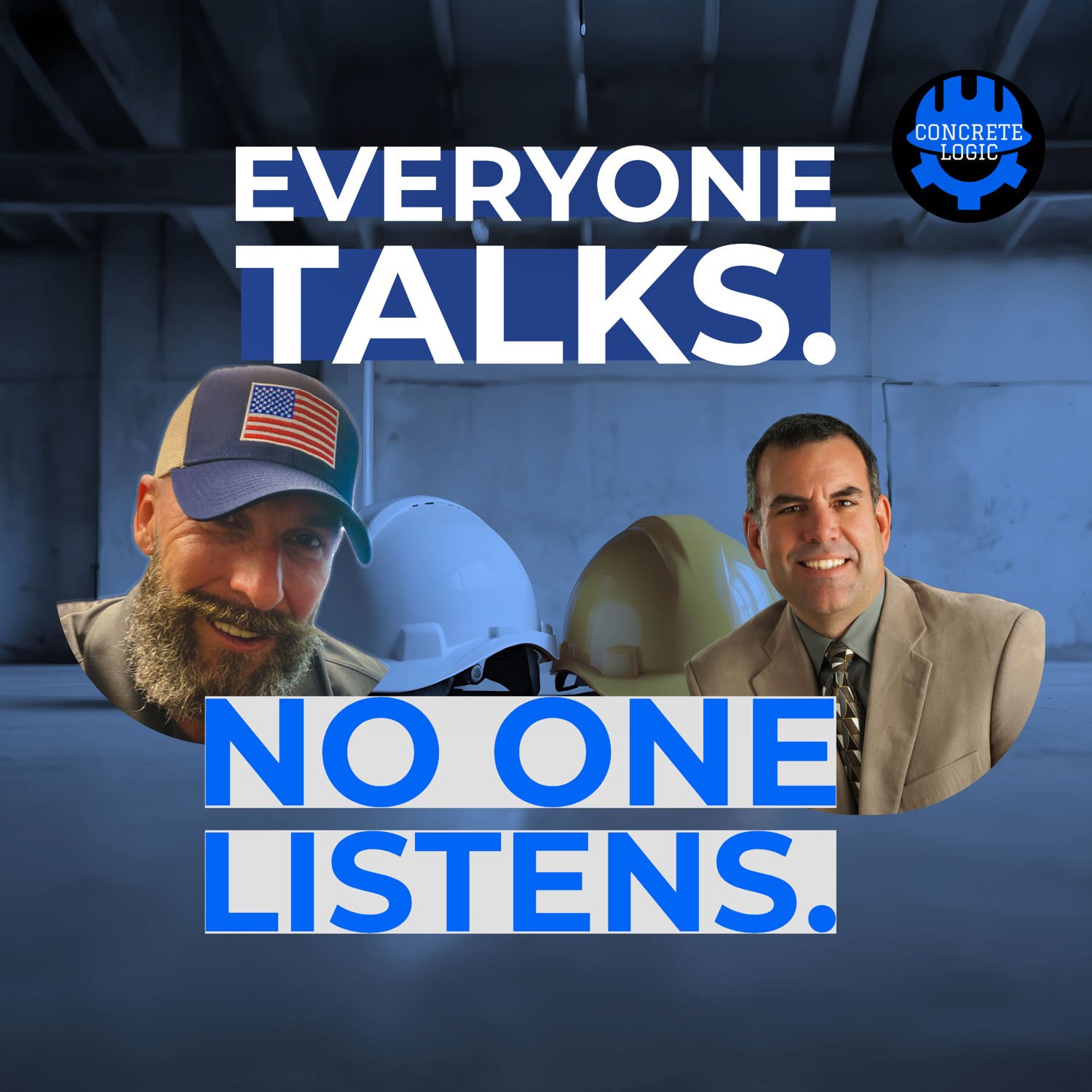
What’s the one skill that separates talkers from true leaders in the concrete industry?
Seth Tandett sits down with James Baty, Executive Director of the Concrete Foundations Association, to talk about why communication, listening, and follow-up might be more important than specs and slump tests for your career. They cover how to navigate alpha-heavy meetings, what to say (or not say) in a room full of experts, and how asking the right question might make you the smartest person in the room. If you want to grow in this industry without being that guy, don’t skip this one.
What You'll Learn
- What makes a great networker in the concrete industry?
- How do you break into a tight-knit group at a networking event?
- Why listening might be the most underrated leadership skill.
- How to navigate meetings full of loud voices and strong egos.
- What kind of follow-up makes you memorable.
- How to bring value back to your company after an event.
Chapters
- 00:00 Intro: Concrete Chemistry… of People
- 02:35 The Art of “Making Friends” in Construction
- 05:10 Why Listening Comes Before Leading
- 08:55 Type 1L Cement: A Lesson in Communication
- 10:30 How to Spot Real Networking Opportunities
- 13:15 What to Do in a Room Full of Strangers
- 17:00 Why Asking Questions is a Power Move
- 22:00 Follow-Up That Builds Real Relationships
- 24:45 Final Advice from James
=============================
Take Your Knowledge Further – Join Concrete Logic Academy!
Gain access to expert video lessons, live Q&As, and professional development hours (PDHs). Learn what textbooks won’t teach you.
Start Learning: https://www.concretelogicacademy.com
Support the Podcast – Be Part of the Concrete Revolution!
Help us keep the Concrete Logic Podcast going strong. Your donation helps the entire concrete community get better and smarter.
Donate here: https://www.concretelogicpodcast.com
Want your company to sponsor the podcast? Learn how: https://www.concretelogicpodcast.com/p/partner-with-concrete-logic-podcast/
Guest: James Baty, Concrete Foundations Association
Guest Website: https://cfawalls.org
Producer: Jodi Tandett
Music by: Mike Dunton (Instagram: @Mike_Dunton)
Stay Connected & Watch More!
Host: Seth Tandett
Email: seth@concretelogicpodcast.com
LinkedIn: https://www.linkedin.com/in/seth-tandett/
YouTube: https://www.youtube.com/@concretelogicpodcast
Website: https://www.concretelogicpodcast.com
LIKE, SUBSCRIBE, COMMENT & SHARE for more concrete truth bombs.
00:26 - Intro: Concrete Chemistry… of People
03:01 - The Art of “Making Friends” in Construction
05:36 - Why Listening Comes Before Leading
09:21 - Type 1L Cement: A Lesson in Communication
10:56 - How to Spot Real Networking Opportunities
13:41 - What to Do in a Room Full of Strangers
17:26 - Why Asking Questions is a Power Move
22:26 - Follow-Up That Builds Real Relationships
25:11 - Final Advice from James ============================= Take Your Knowledge Further – Join Concrete…
Seth Tandett (00:00)
And welcome to another episode of the Concrete Logic Podcast. And today I have James Beatty with me. He's the executive director of the Concrete Foundations Association. He's been in concrete for over 30 years. Is that right? That's yeah. Yeah. It's not that, I mean, to me it's, it's a long time, but I'm not too far behind you.
James Baty (00:14)
time but yes I'll have to admit to that.
Ha
Seth Tandett (00:25)
And he also has his own podcast, which is cool behind the mic. So check, check him out. I think we're going to put this episode out through his, his channel as well. hopefully,
Folks will check both of the podcasts out. But today, we're going to talk about, normally on the, at least lately, we've talked about concrete chemistry a whole lot on this show. But James had a great idea about talking about chemistry in a different form. So today we're going to talk about networking and kind of the soft skills of networking. We thought that would be great.
to share, especially for folks that are coming up in the industry, to don't overlook this very important skill to have. So James, if you want to kick things off, that would be great.
James Baty (01:10)
Seth, that's great. I appreciate finally collaborating with you. I followed you for a few years now and it's always good to bring together a couple of podcasts, but to just bring together industry minds, especially the guys like you and I that have been in the trenches for as many years as we have. And as we were talking through the setup and the focus that you have on concrete chemistry,
And I love that, but I am never gonna try to compete with a Dr. Belkowitz or Dr. Shezzi or anyone that carries those credentials. But chemistry is so important to us as people too. And I think we were just relating as we were setting up this call.
that when we build with concrete, and it's so important to us to understand the constituents that work within the mix and how they relate to each other, size, particle shape.
chemical componentry because it has to work together to produce the the brilliance the the performance that we want out of that concrete and As I think about that, that's the same thing that we want out of our people That's the same thing that our businesses need is we need people that are exposed to each other that understand the the gifts and the graces that each other bring to the table and To and to spend the time to learn from each other. That's what I thought we could talk about here on this on this cast today
Seth Tandett (02:27)
Yeah, yeah, that's great. Yeah, I was just thinking about that because my kids lately, they're, I was sharing with you most of my career, I was in operations and you know, started off as a field engineer in the field and worked my way up through and just recently moved over. say recently, time flies by, James. It's almost three or four years now.
But I've moved over to business development, so that's my focus for Baker. And so go out there and find work. And my kids, they're like, what does dad do? They kind of didn't understand what I did when I actually went out and managed projects. But now I tell them I just go out and make friends. That's what I do.
James Baty (03:14)
And there's an art to that. And what I find myself repeatedly telling our emerging leaders is that you come to the table with knowledge. You come to the table with assets that everybody at the table.
wants to learn, wants to understand. So often we can present our society as you've gotta pay your dues, you have to step up over time and prove your value before you can be invited to the table or invited into the conversation. As you're talking about your kids, I was thinking back to my very first professional engagement.
Went behind the years, I was fresh into the concrete industry. Basically, I'd sat behind a computer and drafted details and tried to begin proving technical knowledge.
And they needed somebody to go into a meeting in Lexington, Kentucky. It was for a brand new distribution warehouse that was being built. And the companies, for the first time, were exploring insulated tilt-up construction. And they wanted somebody to go in and prove that this large building could get built that way. And they sent me in.
And I walked into the room and there's engineers and there's general contractors. There's the tilt up superintendent that had probably 40, maybe even 50 years to his CV. And they all turned and they looked to me to prove a point. Can we do this? How are we going to accomplish these details?
and invited me into the conversation. And that's where networking and this idea behind chemistry took off for me because from that point on, I realized that I had something to tell that they were missing, information that they were missing. And all I need to do is to understand my role in being part of that conversation, to listen correctly, to listen completely, but be bold enough to go ahead and give my opinions. And that's what I've been exploring over the last 30, 35 years, 25 years in association development.
Seth Tandett (05:09)
Yeah, but the key, what you hit on was the first part, was the listening. That's what folks overlook, I think.
James Baty (05:14)
listening.
Yeah. So when we talk about soft skills and the chemistry of networking based on your soft skills, listening's number one. You should walk into every environment being quick to listen, slow to speak. And I really appreciate today, for instance, ACI committees I'm on, I've been on, you know, 15, 18 different committees. I think I'm on seven right now. And I appreciate those environments because there's always a lot of work to get done.
But when I observe young professionals coming, sitting at the table and listening, and listening is not just ears, listening is also eyes. And you can see them working in the room and you can see them digesting whose position has value, whose position has truth. And then when they finally engage the room, engage the committee meeting,
they almost always have something really valuable to contribute.
Seth Tandett (06:17)
Yeah. And plus, I don't think you can speak without listening first, right? Because if you're going to just, you're just going to... Well, ⁓ in our industry, there's a lot of talkers.
James Baty (06:24)
⁓ It depends. Yeah.
Yeah. so, you know, we found ourselves in a really unique time in our industry.
And I know every one of your listeners is waiting for us to start into a magic conversation on type one L because every concrete conversation I've been in the last four years has at some point hit on type one L and the woes or the difficulties, the frustrations. But in reality.
That too is just an example of needing the soft skills to apply to networking to create people chemistry so that we can understand what's changed and go and do the work necessary to make it high performance concrete once again.
Seth Tandett (07:09)
Where do you think that communication lagged or didn't exist or?
James Baty (07:15)
I think it was a series of corporate decisions that stopped at the decision and didn't progress effectively through communication as contracts and relationships were being built. When you make a change, the quickest thing to do is, or the quickest temptation is to contain the change.
to reduce the number of people that are aware of the change because you're either not getting more money for it or you don't want to open yourself up to the impacts of those changes. And.
Especially when you're dealing with products like the concrete industry, look at how old the concrete industry is and how many variations of concrete we've endured. We've seen historically go all the way back to, you know, Mount Vesuvius and volcanic ash based concrete from the Romans.
But in reality, all the way along, we've learned through doing. We've learned through reacting. And so what's unique about this moment is we took a product that has lot of experience, 30, 50 years of experience in some markets, and we just brought it into a new environment and decided it was a one-to-one change. Nothing's a one-to-one change. Everything impacts everything else.
You don't suddenly pull a project manager out of your business with 25 years of experience and bring in and plug in a new project manager and expect for all of your projects to run in the same way. Cement's like that. So I don't think there's any dissimilarity whatsoever between the behavior of our concrete, the performance of our concrete, the behavior of our people, the performance of our people.
Seth Tandett (08:53)
Yeah. What other, so we stay on task because that's a, well I think anytime you bring up the favorite subject of the, I'd say the decade so far. Yeah.
James Baty (09:01)
That's a great risk when you bring me on your podcast.
Yeah, yeah. So back to networking. So
let's pull back there. are your opportunities? And I think that's the other thing that I've noticed in our industry is
We are trying to produce at such a breakneck pace. Our project schedules have, and this is largely, I think, because of technology. Technology is teaching us to move at faster and faster rates. Communication technology, drafting technology, estimating technology, building technology, demolition technology. It's all about reducing time and gaining efficiencies.
And so because of that, we've individually, we've kind of locked ourselves out of a mindset for what does it mean to take a moment and explore a network? What's the next networking opportunity? You and I were talking about the need for you to be the world of concrete. That's the next big networking opportunity for you to engage people in new ways. And many of them are your listeners, your regular subscribers to your podcast.
emerging leaders, I try to speak to them to say, what interests you about the work that you've been invited into doing and where can you go to get more experience, more exposure? That's the networking that we need to spend the time and we as business owners, as business managers need to empower our team to get into those places to spend, to take that pause and to learn.
Seth Tandett (10:28)
Yeah. What would you say to someone that go back to that meeting that you talked about that first meeting you had where people actually asked you how do we build this building up with tilt?
Those folks came to you and asked you, right? They kind of asked you, what about someone that's in that same stage in their, in their career?
wonder if folks don't ask you and you're just there. Do you insert yourself into the conversation or do you focus on listening? mean, how do you navigate that as a young professional?
James Baty (11:05)
I think that's really a good question. to me, the answer is yes. And I'll say, here's why my yes, I answered that, you know, a seemingly option question with a yes, which means both. So when I went into that environment, was scared off out of my shoes. Like I was not ready for that meeting. And the first thing I did was I listened.
I listened to the opening of the meeting. listened to the concerns that everybody had. I listened to what I began to understand was their base, their foundation of knowledge. If you can understand the foundation of knowledge for the people in the rooms with you,
then when you take the opportunity to insert yourself into the conversation, you're inserting yourself into the conversation, ripe for the knowledge that you bring with it that instantly is the expertise. And what I would not have been prepared for and what I wasn't really prepared for is if I had walked into the room and been asked to give a presentation right off the bat as to how to integrate this product for their solution.
Instead, I was brought into a collaboration meeting. And I think, again, of the time frame that we deal with, the efficiencies that we're looking for in our modern day businesses, we oftentimes are inviting people in to give a presentation first. We have to listen first. You we don't build a building by putting the roof on. We start with a foundation. We start with an excavation.
And that's that listening period. That's the time where you develop an understanding for how the building is going to get grounded. How is my material going to perform the way that it's been designed to perform? Because heretofore, it exists in a digital world. It exists in a laboratory until we get out and we dig and we begin to place it.
That's that crossover between the guys you and I know, the guys that we love to work with, that have been doing this for years and years and years, and they've got grit underneath their fingernails, and they've got concrete literally in their bloodstream. And those that are just jumping in or being pushed out into the market.
Seth Tandett (13:11)
Yeah. Yeah. And that situation is a little different. Um, but I think we were talking about is if you're going into a networking situation, say at a convention or some kind of, you know, social, maybe social local event and you're the networking thing is new to you. And you know, do you know how it is? You go in a room and there's folks.
grouped around and you know there are pods of three and four and they're having a conversation and so how do you what what what kind of advice would you give someone in that situation how do they handle that?
James Baty (13:54)
Yeah, that's really good. Because the networking is an intimidation side of it. In fact, so often I will see, and I just had this conversation with a mentee that I've been assigned through the American Concrete Institute that.
Seth Tandett (13:59)
Right.
James Baty (14:09)
There is a tendency in these networking situations to coagulate based on your uniqueness. You find others that are identical to you because it's easy to share in that way. It's difficult to share across generation. It's difficult to share across discipline, contractor to engineer to academia. ⁓
Seth Tandett (14:30)
Yeah.
James Baty (14:31)
And so I think that environment is best attended to if you walk in and you just stand there. You join the conversation and be content to listen. Invariably, you're going to get noticed.
Right? You're not going to be that wall fly that gets ignored. You're going to get noticed because you can, you've, you've stood there for a period of time listening to the environment, which also then gives you the foundation to speak. But I think, our tendency to prove ourselves upfront needs to take a back seat and let ourselves just like the meeting I went into where my whole purpose for that meeting was to provide a solution.
You still have to develop the foundation. still have to develop the invitation to participate, not because you've earned it, but because you've been noticed, you've been appreciated. that's not to say to young professionals, wait and speak when you've been asked to speak.
but it's a different side. It's a different soft skill of understanding the nature of relationships and I think preparing the space that you're in to receive what you then able to speak.
Seth Tandett (15:46)
Are you, I'm sure you've talked to others about this, but that mentor relationship that you have, are you talking to them specifically about these type of situations or what about, is there any discussion going on about how to translate these soft skills into a, say, internal meeting at the company you work at?
Again, you're maybe not as seasoned as some of the folks you work with, you oftentimes find yourselves in this meeting and you can sit there and listen like you suggested and do that at every meeting. But at some point, I think you got to maybe raise your hand and say something without physically raising your hand. You don't want to do that, right?
I'll go, hey, I want to talk. But ⁓ yeah, my turn. Because I will say in our industry, the reason why I brought this up, again, just based on my decades of experience, I try to not say that too often. But you find yourselves in this industry that
James Baty (16:39)
My turn. Yeah.
Seth Tandett (16:55)
We have a lot of alphas in our our industry and it seems like it's the one who gets the last word in is the dominant alpha, right and so and these it this it doesn't just Happen during times of conflict. It also happens in times of like having these regular meeting so everyone's got to say something and they got to talk over each other to kind of show who's the
who's the king of the room, So to me, as a young professional, you gotta navigate that as well. So what would you say to someone that was in that situation?
James Baty (17:37)
Yeah, and I also, so there's one more aspect that I wanna make sure we don't lose track of, and that is the value, and you kinda mentioned it just a little bit there, but the value that you bring back to your company.
Seth Tandett (17:42)
Okay.
James Baty (17:49)
Again, when we're talking about today's business environment where companies are really holding tightly their employees and deploying them with efficiency and effectiveness. Get this job done and then move on to this schedule and get this job done and then move on to here. So the idea of relinquishing time and maybe even travel expenses to these networking opportunities for company owners is a large risk.
and probably not very, it doesn't feel very natural these days. As the young emerging leader, one of the things that I'm trying to advise on is how do you build value to your company? And so in that environment that you just described,
the time that you spend listening, even if it's just a small window, a small window of listening to make sure that when you do speak into the, let's say you joined a group with six alphas and I'm, you know, I'm a 20 something and, and I've got my degree and I've been given my initiative. I need to go to this networking event and I need to come away with it so that I can prove value.
listening to what they're talking about then gives me the ability to ask questions. And what I love about podcasts is that take somebody like you and when I'm given the opportunity to do my own podcast, I...
would much rather ask the questions. I need to listen enough to find where this is going so I can ask the right question to get to the result that we're looking for out of this podcast. Meandering guy like me, mean, my thoughts go all over and I'm shoot. I almost connected you to watching 28 years later, just the other night when I thought was thinking about Alphas. And so I'm that shiny, that shiny object, you know, squirrel. Where do I go here with this idea? But I think the the purposed
investment that companies need to make in networking, sending individuals, we need to prepare them to go into that space to listen, ask a couple of the right questions so that through those questions I can then make the statements that are impactful to the meeting itself, but more importantly, then I can extract the information that I can go back to my company and teach the company.
Seth Tandett (19:56)
new.
James Baty (19:57)
And that's what the company opportunity is, is to release, empower, distribute into the market, into these networking events, the right people, the fresh idea generators to come back and teach the companies even more.
Seth Tandett (20:11)
Yeah. Because the reason I brought that up was when we were talking initially about going into one of those networking opportunities and you suggested to kind of align yourself with maybe
someone that, I mean, that looks like you, that looks like a contractor. I'm to go talk to a kind of, you're, if you're an engineer, go, that looks like an engineer. go talk to at some point, you got to cross pollinate. got to insert to, and so, um, I, personally found myself in situations where, you know, you're just like, people are just talking over themselves and I'm one of those people, uh, cause I've, I've gotten this feedback, uh,
from folks in my past is, Seth, we want to hear more from you. And I was like, I'm not one of those people that could come over and try to talk over someone. So I wait for my spot to insert something. And typically, it's a question, which drives some people crazy, I found. Why Seth just ask questions? He just asks questions.
And I
James Baty (21:15)
I'll
bet in a lot of those situations, you've come, they've left thinking you're one of the smartest people in the room.
Seth Tandett (21:20)
Uh-huh.
I'd never, I never think about that. was just like, I knew. Yeah.
James Baty (21:24)
I know you probably don't, but that's my experience is that the
person that asks the right question, asks the thoughtful question, asks the provoking question. And here's another thing, you talk about the alpha males that are trying to get over, or the alphas period, that are trying to get over one another, because it's not necessarily alpha males. They're not listening.
Seth Tandett (21:38)
Yeah.
Alright.
James Baty (21:45)
They're not listening to each other, they're one-upping each other, and sometimes the right question is the connecting tissue that makes all of those relevant. Brings them all back together again and gets them collaborating, gets them working together, which is, again, is another soft skill lost.
Seth Tandett (22:03)
Yeah.
Yeah, I agree with that. I would say there's more talkers than listeners out there for sure. What else advice do you want to give today before we end?
James Baty (22:15)
So another soft skill that I think is really important in this setting is follow-up.
One of your greatest assets as a collaborator and a contributor are the connections that you make. One of the ways of securing the value of those assets is the follow-up. And so what I would say to anyone, you don't have to be an emerging leader. You could simply be,
new to the networking environment or seasoned in the networking environment but have never deployed this exercise within a couple of days after one of these environments send a note if you can do a physical note great if you do a digital note it's sufficient but you know i've a i've got a thing right now against relying on digital communications i i feel like we're inundated so much that most people just pass over them and they never land
Seth Tandett (23:09)
Mm-hmm.
James Baty (23:10)
But reach back out and express your gratitude or remind them of a thought that you'd like to follow up sometime if you get another chance. Engage them in such a way that makes your time with them memorable. Because the other thing about networking environments,
And it doesn't matter whether we're talking about an association convention, a world of concrete, committee meetings at ACI, every single, it could be even your local ReadyMix association gathering. You meet so many people, you come away, there's no way you can remember everybody. The people that you're gonna remember are those ones that followed up with you afterwards.
thanked you for your time, thanked you for your thought, or engaged you with an afterthought, whether that be a question or maybe you've thought about it all the way home, took a plane ride and.
kind of processed what you had been talking about, and you remembered this point, and so that you can offer that back out. To me, that's how you solidify those relationships. And then the second part of that is the next environment that you're in, invite that relationship to continue. Invite a connection in some way. Coffee, lunch, just a meetup. Hey, remember we met in Boston at ACI?
six months ago or a year ago or whatever, are you planning on tending this one? Hey, could we get together? I have a couple questions that I've thought of since we were last together. That's where you turn those assets into real value.
Seth Tandett (24:43)
Yeah. Yep. Well, this was great. James, did we cover everything you wanted today?
James Baty (24:49)
Oh, well, I always cover what I want to, because I just talk. as long as this is valuable to your listeners, that's what my real goal is. I just want to people unique thoughts. the paradigms a little bit about what it means to be in industry. And I think the most valuable thing that you can take from any of these podcasts
and your investment in yourself is that you bring value. You inherently bring value because you are. And so now what are you going to do to build that value? hopefully we gave them some tools to do that today.
Seth Tandett (25:25)
Yeah,
that's perfect. Thank you. And I will share, as always, folks, if you check out the show notes, how to get a hold of James. If you want to reach out to him and find out what next convention or spot that he's going to be at. So you can quiz him on this because you want to, like you said, ask him questions.
James Baty (25:49)
Yeah, and if you make it to World of Kankri, maybe we'll do a follow-up podcast together. Love it.
Seth Tandett (25:54)
yeah, that sounds good. All right.
All right, James. Thanks for coming on the show today. And folks, until next time, let's keep it concrete.
James Baty (25:58)
Appreciate it.
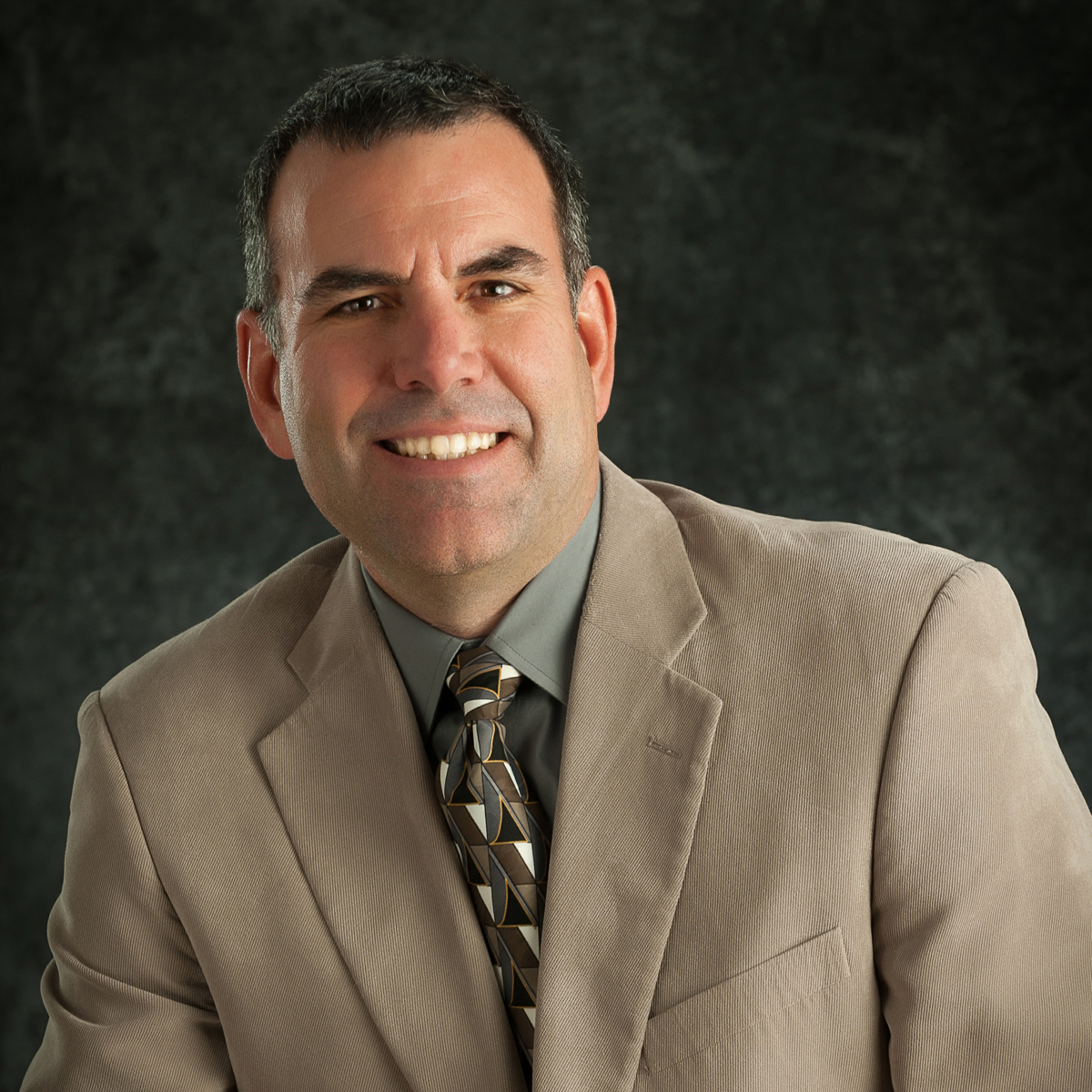
Executive Director
James Baty is a seasoned concrete industry leader, now part of The AOE Team, with more than 30 years of experience in construction, association leadership, and thermal design efficiency. He currently serves as the Executive Director of the Concrete Foundations Association.
James holds a Bachelor of Architecture from Iowa State University and previously served as Technical Services Manager for Thermomass, leading energy-efficient design integration and thermal modeling initiatives. He has contributed to key industry research and frequently presents on concrete construction best practices, energy performance, and cold weather concreting at national and regional events.
A Fellow of the American Concrete Institute (ACI) and the Tilt-Up Concrete Association (TCA), James serves on several ACI committees and has contributed to standards development across ACI, ASHRAE, PCI, and CSI. He continues to advance industry knowledge through education, research, and leadership.







